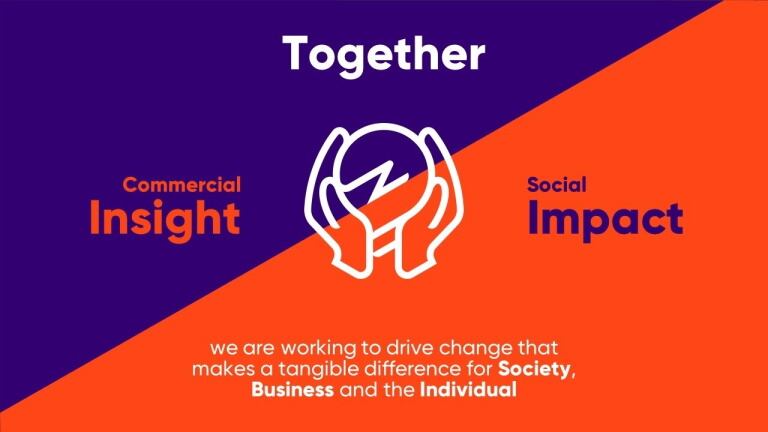With more than 100 years’ experience supporting the food sector, IGD believes it has a unique role to play in the development of the industry through thought leadership and partnership. The organisation recently established a new identity to strengthen understanding of its two halves: the trading company, which has been rebranded to Commercial Insight, and the charity, which will now be known as Social Impact.
IGD has always operated as two divisions and the revenue generated by Commercial Insight will continue to be re-invested in Social Impact.
Through these two communities, IGD hopes it will achieve its purpose of working to drive change that makes a ‘tangible difference’ for ‘society, business and the individual’.
“Our new purpose and organisational narratives set out our clear vision for the future, allowing us to communicate this to our stakeholders and the wider industry,” chief executive Susan Barratt revealed.
“We wanted to adapt our identity and approach to reflect the huge changes that are continually happening across our industry and broader society. Our evolution brings together our two communities, Commercial Insight and Social Impact, which together drive change that makes a tangible difference for society, business and the individual. This is the purpose of IGD and will be reflected in everything we do as an organisation, to support everyone within the food and consumer goods industry.”

A period of ‘huge’ change
The move to re-organise and re-define IGD comes at a time of ‘huge change’ for the food industry specifically and society more generally, Barratt told FoodNavigator.
“The food and consumer goods industry is incredibly dynamic and after a period of huge change both across our industry and broader society, there is no better time for us to set out our vision for the future and underpin IGD’s commitment to be a force for good,” she revealed.
How does IGD view its role as a ‘force for good’?
“We strive to make a positive difference to society through our Social Impact community, by working in partnership with our industry to address the economic, social and environmental issues that matter to us all,” the CEO elaborated.
The issues IGD has identified as crucial to the future of the food sector are wide-ranging indeed. They span the broad topics of people, health, sustainability and economics.
“There are several challenges happening in our industry and we aim to tackle the big issues,” Barratt elaborated.
“These focus areas include giving young people opportunities to develop their employability and life skills; making healthy and sustainable diets easy for everyone; tackling climate change, sustainable packaging, and food waste reduction; and supporting better strategic planning and decision making for the benefit of consumers, through economic analysis and engagement with policy makers.”
IGD is involved in the establishment of various initiatives to further this agenda, including the Food Waste Reduction Roadmap in association with WRAP, which was created to help food and consumer goods companies reduce their food waste. “We have also recently completed our third virtual work experience programme, training more than 500 young, unemployed people in employability skills amid the burgeoning employability crisis in the UK,” Barratt explained.
“We want to ensure that healthy and sustainable diets are easy for everyone, and we are helping to accelerate our industry’s progress towards Net Zero by mobilising sustainable packaging systems and championing food waste reduction.”
Bringing people together around ‘shared goals’
Barratt believes that to support transformative change and truly deliver as a ‘force for good’, IGD’s role in bringing stakeholders together and increasing discourse across the industry is more relevant today than ever.
“It is incredibly important and one of IGD’s unique strengths is its ability… to bring people together, connecting them around shared goals and issues. We are the catalyst for collective action, enabling our industry to gather in non-competitive settings for constructive debate and action. This work is supported by our data and insight and rich industry understanding, which allows us to share learnings and best practice and ultimately leads to finding solutions to issues and creating genuine social impact."
Barratt concluded: “We believe the future of food and consumer goods has at its heart a collaborative approach from motivated industry leaders, to address and drive positive change on the social and economic issues that matter to us all.”




